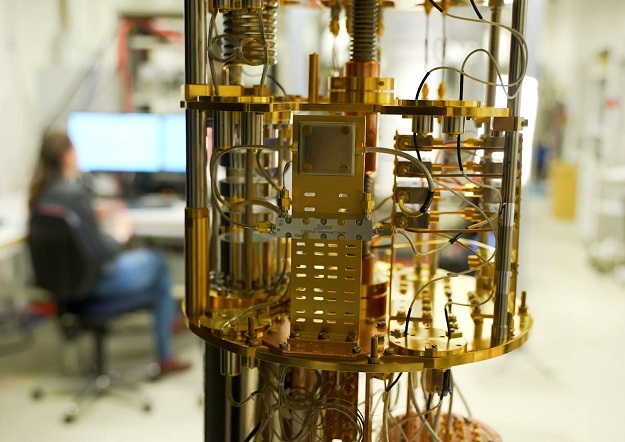
Image courtesy Q-CTRL
Q-CTRL, a developer of quantum technologies through quantum control infrastructure software, has launched a quantum sensing division, which it says is one of the largest in the world.
The company is developing a new generation of ultrasensitive, software-defined quantum sensors for use in measuring gravity, motion and magnetic fields.
Q-CTRL says the new devices can have real-world impact in defence, PNT (positioning, navigation, and timing), minerals exploration, magnetic anomaly detection, persistent earth observation for climate monitoring, long-term weather forecasting and space exploration.
Application examples include:
- Measuring gravity via quantum sensing, which might provide new insights into how water is moving underground and how ocean currents are changing over time
- Space-based quantum gravimeters, which might prove to be the essential technology to help predict and prevent drought or the impacts of mining activity on water and agriculture
- Quantum sensors that can navigate without GPS, detect underground hardened structures, submarines or hidden weapons systems.
The company first publicly showcased its new capabilities at the Australian Army Quantum Technology Challenge (QTC) this month.
The Army QTC is part of the more than $60m of publicly disclosed quantum sensing contracts awarded to Q-CTRL’s sensing team and its partners over the last 18 months.
This includes a project with Advanced Navigation on hybrid classical-quantum inertial navigation, and both Modern Manufacturing Initiative (MMI) and CRC-P contracts developing space-qualified quantum sensors.
In addition, Q-CTRL is a partner in the Australian Space Park project with Fleet Space Technologies, ATSpace and Alauda Aeronautics supporting a state-of-the-art space manufacturing hub in Adelaide, South Australia, which is scheduled to open in 2025.
Q-CTRL says its dedicated sensing team has expanded to 15 members in just over a year. The Division is led by Dr Russell Anderson, who left his academic professorial position to become Q-CTRL’s Head of Quantum Sensing.
The company says its team has attracted global experts from Australia, the UK and Europe with specialised experience and track records in building ultrasensitive atomic devices, using quantum control to augment the performance of quantum sensors, and building detailed quantum digital twins for hardware to simulate end-to-end performance in real environments.
“Q-CTRL’s mission is to make quantum technology useful. From day one we knew that quantum sensing provided a near-term opportunity to translate our specialization in quantum control into value capture and new sovereign capabilities,” said Michael Biercuk, CEO and founder of Q-CTRL.
Sensing is a $400 billion market opportunity spanning multiple verticals (BCC Research), with remote sensing currently valued at ~$19 billion and growing 10% CAGR. The specific quantum sensing market opportunity is identified as ~2–4% of this market by 2040 according to CSIRO.
Stay up to date by getting stories like this delivered to your inbox.
Sign up to receive our free weekly Spatial Source newsletter.







